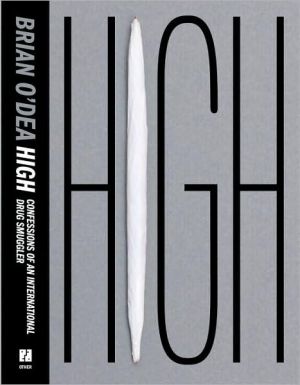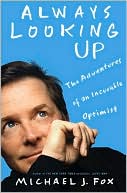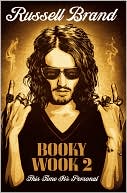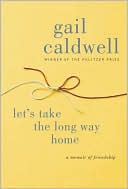High: Confessions of an International Drug Smuggler
In the early 1980s, Brian O’Dea was operating a $100 million a year, 120-man drug smuggling business, and had developed a terrifying cocaine addiction. Under increasing threat from the DEA in 1986 for importing seventy-five tons of marijuana into the United States, he quit the trade–and the drugs–and began working with recovering addicts in Santa Barbara. Despite his life change, the authorities caught up with him years later and O’Dea was arrested, tried, and sentenced to ten years at...
Search in google:
In the early 1980s, Brian O’Dea was operating a $100 million a year, 120-man drug smuggling business, and had developed a terrifying cocaine addiction. Under increasing threat from the DEA in 1986 for importing seventy-five tons of marijuana into the United States, he quit the trade–and the drugs–and began working with recovering addicts in Santa Barbara. Despite his life change, the authorities caught up with him years later and O’Dea was arrested, tried, and sentenced to ten years at Terminal Island Federal Penitentiary in Los Angeles Harbor. A born storyteller, O’Dea candidly recounts his incredible experiences from the streets of Bogotá with a false-bottomed suitcase lined with cocaine, to the engine compartment of an old DC-6 whose engines were failing over the Caribbean, to the cell blocks overcrowded with small-time dealers who had fallen victim to the justice system’s perverse bureaucracy of drug sentencing. Weaving together extracts from his prison diary with the vivid recounting of his outlaw years and the dawning recognition of those things in his life that were worth living for, High tells the remarkable story of a remarkable man in the late-1980s drug business and why he walked away. Publishers Weekly In this wistful but honest look at a life subsumed by drugs, now-reformed smuggler O'Dea (a Canadian film producer) pulls back the curtain on the machinations and motivations of a hugely successful, outrageously addicted 1980s drug trafficker whose redemption came too late to save him from prison. Haunted by childhood sexual abuse, O'Dea found escape in drugs and alcohol, eventually building a life around them. O'Dea's over-the-top abuse (an estimated 1000 tabs of acid in five years) and spiral of shame (he would "spend considerable energy avoiding" his brothers, sisters and parents) seemed, paradoxically, to push his illicit activities (and the justifications for them) further. Stories illustrating the lengths to which the smuggling ring would go, and their enormous potential for disaster, include a $100,000 plane rental which O'Dea almost co-pilots into the sea (steering by the lights of the fishing boats below, instead of the stars). Told through a prison-block framing device that returns again and again to the call, "Cuenta! Counting B Range!", O'Dea maintains a sense of numbing repetition that resonates with the addiction narrative and keeps the drug cowboy tales grounded. Throughout his life's many ups and downs, however, O'Dea remains a charming, relatable narrator you can't help but root for. Copyright © Reed Business Information, a division of Reed Elsevier Inc. All rights reserved.
Santa Barbara, California. Eight o’clock in the morning, 1990. I lay in bed, thinking about the hospital. A heroin addict named Danny had come in the night before. I could still feel the pressure of his head on my shoulder as he sobbed his wretched heart out. I’d started to work with him, then left about midnight. I wanted to go back that morning, see how he was doing. Poor bastard.\ A hard knock on the door. Just from the knock, I knew this day was my day.\ I got up, put on the bathrobe my friend Molly had made for me–a black and white thing–and went to open the door. There were Venetian blinds on the windows. They were partially closed, but through the slats I could just see the hands and the handguns. I felt this strong desire to disappear. I opened the door. One guy held up a badge with one hand–a Drug Enforcement Agency star.\ “My name is Gary Annunziata, and I’m with the Drug Enforcement Agency,” he said. “Your name Brian O’Dea?”\ “I wish it wasn’t, but it is.” He nodded almost imperceptibly. “May we come in?”\ “You’ve got the gun.”
\ Publishers WeeklyIn this wistful but honest look at a life subsumed by drugs, now-reformed smuggler O'Dea (a Canadian film producer) pulls back the curtain on the machinations and motivations of a hugely successful, outrageously addicted 1980s drug trafficker whose redemption came too late to save him from prison. Haunted by childhood sexual abuse, O'Dea found escape in drugs and alcohol, eventually building a life around them. O'Dea's over-the-top abuse (an estimated 1000 tabs of acid in five years) and spiral of shame (he would "spend considerable energy avoiding" his brothers, sisters and parents) seemed, paradoxically, to push his illicit activities (and the justifications for them) further. Stories illustrating the lengths to which the smuggling ring would go, and their enormous potential for disaster, include a $100,000 plane rental which O'Dea almost co-pilots into the sea (steering by the lights of the fishing boats below, instead of the stars). Told through a prison-block framing device that returns again and again to the call, "Cuenta! Counting B Range!", O'Dea maintains a sense of numbing repetition that resonates with the addiction narrative and keeps the drug cowboy tales grounded. Throughout his life's many ups and downs, however, O'Dea remains a charming, relatable narrator you can't help but root for. \ Copyright © Reed Business Information, a division of Reed Elsevier Inc. All rights reserved.\ \ \ \ \ Kirkus ReviewsBlistering memoir by a once-notorious drug smuggler and addict. Canadian O'Dea writes that a spiritual depression was part of what led him to become an international marijuana-smuggling kingpin in the 1970s and '80s. Brought up a "good Catholic," he found his faith wavering early on, as his childhood entreaties to the Blessed Virgin and God seemed to fall on deaf ears. He describes in unsettling detail a few particularly traumatic experiences at school with passive-aggressive, pedophilia-inclined priests that played a role in his loss of faith. Yet O'Dea's upbringing was otherwise staunchly middle-class and relatively normal. It seems he was simply a born salesman, with drugs being a convenient and lucrative trade when he began dealing to fellow college students in the early '70s. (Later, he effectively sold hair tonic and dinosaur-bone jewelry during lulls in his narcotics racket.) His 20-year smuggling career took him to dangerous, exotic locales like Bogota, Colombia, Montego Bay, Jamaica, and Moultrie, Ga. O'Dea had a few impressive multimillion-dollar successes-yes, crime often does pay, for a while at least-but he more often emphasizes the futility of the business. Every operation depended on meticulous administrative planning, dumb luck and weathering built-in occupational drawbacks: rip-offs, double-crosses, getting wasted and waiting, waiting, waiting. O'Dea's clipped, jabbing prose rarely flags. Especially tense is his retelling of an ill-fated trip from Georgia to Colombia, and back, in a rickety 1949 DC-6. He deftly interweaves a parallel narrative of his incarceration at Terminal Island prison, where pot dealers often served 50-, 60- and 70-year sentences, exposing a U.S.prison system nearly as corrupt as the drug trade itself. Clarity of voice and extraordinary powers of recollection make this an unusually revealing account of a criminal's rise and fall.\ \








